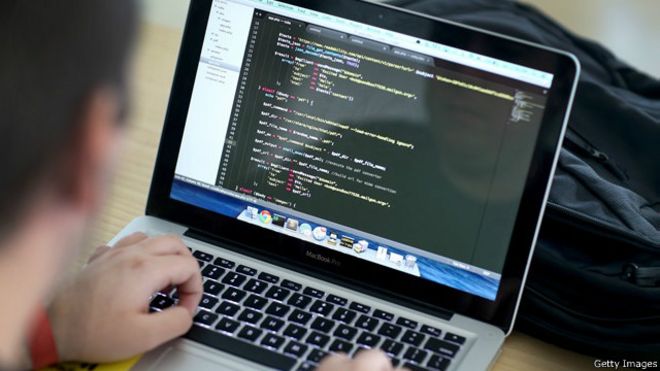 Hackers can retrieve your data from the internet (Getty Images)
Hackers can retrieve your data from the internet (Getty Images)- Communication | Do not hate phone calls, hate phone
Phones used to be "really great" when the telephone in the house, in a quiet place.
Cell phone changed everything for the worse.
"When you combine a variety of things such as a voice call with a sense of urgency that made the phone call as if more important than email, this increases the anxiety." (Ian Bogost, Atlantic, 2890 words)
- The music industry | creative revelation that it was not so
Art thrives in the Internet age.
Only the music industry which radically disrupted, and workers' earnings even music is not lost, but distributed differently.
"The authors, performers, directors and even musicians who report their wealth indicate their incomes are similar to their counterparts 15 years ago, and in many cases even improved their economic circumstances.
Against all odds, the voice of the artist seems to be harder than ever." (Steven Johnson, New York Times, 5,600 words)
- The scientific method | Science is not damaged
Most of commotion about the results in scientific journals that can not be repeated reducing the question of probability.
Statistically significant threshold is a probability of 5%.
If you have less than 5% chance that arise due to mere chance, the work you have the opportunity to be published.
You want your research is published, you tamper with the results. (Christie Aschwanden, FiveThirtyEight, 4,000 words)
- Privacy | Early records of the hacking Ashley Madison
Theft and a public announcement regarding the user profile website Ashley Madison, a dating site for people who are married, have the potential to change the way we look on the internet.
"People expect a high level of privacy than a commercial site, because they are doing something they want to keep their privacy.
It is a powerful reminder of the impossibility of the existence of perfect privacy." (John Herrman, Awl, 918 words)
- Data | File end
Adventures in research on the data.
"It happens to me every few months, namely the desire to explore large amounts of data. In the end I had more than 85 million names of the dead Americans - Social Security file of people who are gone.
I asked Twitter to see the data that are considered attractive, and someone told me: 'Look at this! This is data about the deceased person! ' "It is strange to have a list of the dead." (Paul Ford, New Republic, 1730 words)
- Prediction | A short course on the predict the future
Discussion of experts on forecasting. The first case study: attacks that killed Osama Bin Laden.
"It is an interesting fact that is very high in the debate about national security people did not think it was possible to estimate the probability is very detailed.
They seem to act as if 'things will happen,' and there is 'possible' and 'things will not happen'.
They act as if there are only three levels of uncertainty." (Daniel Kahneman and Philip Tetlock et al., Edge, 14,000 words)
- Tablet | Find My iPad
The iPad was not a good idea for everyone.
Most people use the tablet primarily to watch a video, something the iPad older and inexpensive tablet is also capable of doing very well.
The new iPad sales each year fell and shares of Apple in the tablet market is now only half.
"A category of products with the use cases are concluded through the use Netflix is quite problematic because it is much harder to sell a product that is very specific." (Neil Cybart, Avalon Above, 2460 words)
(Source: BBC)


0 comments